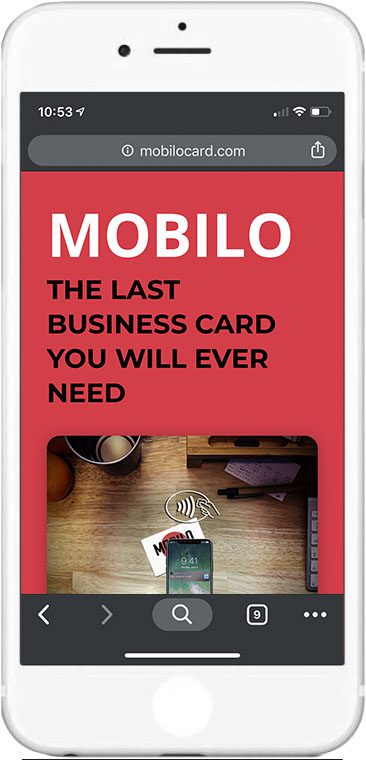When you hear the word “networking”, several pictures may pop into your head. Perhaps you think of a stuffy hotel ballroom that smells of coffee and donuts. Maybe you picture people sitting around a table tossing business cards at one another. Business cards go into pockets and purses and are eventually thrown into a drawer or, worse, tossed altogether.
Networking is an essential part of business culture, and it is changing with the times. Modern networking seeks to shed the staid conventionality of days gone by and usher in an era of leveraging technology and social networking skills.
Pieter Limburg, CEO and founder of Mobilo, is leading the charge on disrupting the networking space. His innovative company, which has created a digital business card, is at the forefront of modern-day networking.

The Days of the Wet-Noodle Handshake Are Gone
With the COVID-19 pandemic making “contactless” the new buzzword, industries that relied on handshakes to accompany introductions or make deals were left wondering how to adapt networking to this “new normal” of 6 feet of distance and touchless interaction.
Mobilo meets this challenge with its digital business card, which relies on RFID technology much as contactless payment options do. It utilizes the concept of “tap and share” to exchange business information. Limburg considers it the “Covid-proof business card”.
“Mobilo allows you to exchange contact details without any physical contact,” Limburg told LA Weekly.
However, meeting the demand of current social distancing protocols is only one way Mobilo disrupts traditional business networking.
Business Evolution
Evolution is a constant in business. When advancements in technology unfold at breakneck speed, companies must keep up or run the risk of being left in the dust.
“As companies and technologies evolve, so must their physical representation,” says Limburg.
For decades, the physical representation for a business that showed up time and again amid networking events was a business card. People would exchange them and keep all of the cards they collected in a Rolodex or folder. Perhaps the more technologically adept people would scan the business cards they received and keep them in a file on their computer. Or, as is the case with 88% of business cards received, they were relegated to the “circular file” (better known as the trash can).
Regardless of how people organized (or disposed of) the business cards they collected, the one constant was the physical medium of the card itself. The United States prints twenty-seven million physical business cards a day. Limburg knew that in addition to solving the issue of socially-distanced networking, he also needed to address the environmental implications of the “old way” of doing things.
Meeting Networkers Where They Are
To meet the moment in the “new normal” of networking, innovators like Limburg need to meet businesses where they are at this moment. This takes an understanding of what is important to people when they are networking. What is the end goal, and how can we do better in ultimately reaching that end goal?
“Business professionals and diehard networkers don’t want to hand out business cards,” Limburg tells Millenium Magazine, “They are mostly interested in receiving a business card. That’s how you stay in control of the conversation. That’s when you can reach out and take the lead.”
Taking advantage of the “Zoom Boom” is also a way networking is pivoting, and Mobilo is right there with it.
“We also see plenty of people using our smart business cards during a Zoom video call,” says Limburg.
Networking is no longer happening just at your local Holiday Inn. It’s Zoom calls and back and forth on Slack. It’s Facebook groups and Twitter threads. Networkers are showing up differently, and the customary business card exchange is a part of networking that needs to change with the times.
The Future of Networking
No one could have predicted that a global pandemic would upend how we do business, including how we network. The future is hard to predict, but the business world can be assured that innovators like Pieter Limburg will be there leaning into every curve with revolutionary ideas that will help us keep all manner of industries thriving.



































